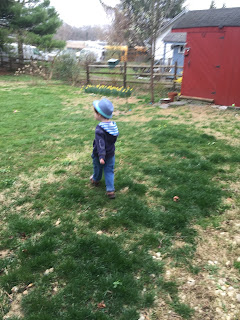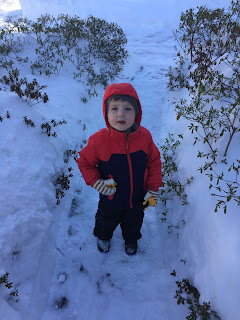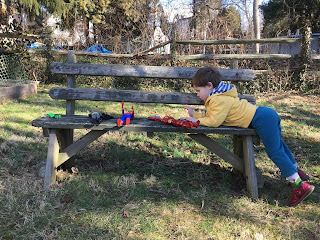Slade House by David Mitchell. This is a little treasure for David Mitchell fans that came out unexpectedly and relatively soon after his latest (and wonderful novel) The Bone Clocks. I think Mitchell is one of the best novelists we have, and with the exceptions of Number9dream and Thousand Autumns of Jacob De Zoet, I love all his books. Slade House has a lot of characters we know from his other books (although that is not to say that I could place all of them). It’s kind of a little ghost story/science fiction fantasy that deals with some of the issues he has raised in other books, although you do not have to have read any of his works to understand this one. It’s scary! It would be a good October read. It begins with a mother and son looking for Slade House. They keep passing it by, because the only way in is through a small doorway set in an alleyway. They find it, and get separated, and the son begins to realize that all at Slade House is not as it seems. The next chapter, and all subsequent chapters occur nine years later. Each time someone is looking for Slade House, or investigating disappearances surrounding Slade House, and whether or not these people end up the next victim, you’ll have to read to find out.
The Crooked House by Christobel Kent. I have mixed feelings about this novel. The main character, Allison, is a woman in her late twenties who was the lone survivor in her family of a terrible crime that occurred when she was 13 or so. Her older brother, younger twin sisters, and parents were all shot, and it was said to be a murder committed by her father. Allison (then Esme) was up in the attic at the time and was the one who came down to discover the carnage. She went to live with an aunt and had never returned to her hometown. When the book begins, however, Allison is dating an older man, Paul, in London, and Paul gets invited to a wedding of an old girlfriend back in the same hometown where Allison is from. Paul does not know Allison’s past, nor who she really is. She returns to her hometown for five days and starts to remember things about the crime. She no longer believes that her father is the perpetrator (he ended up basically braindead and living in a hospital). As the book progresses, some people recognize Allison and some people don’t. Allison talks to the policewoman who handled the case, and is not very pleased that Allison is back. Of course, if her father didn’t do it, then the person who did might put Allison in danger. It’s an interesting scenario and on the whole not badly done. However, as a reader I felt manipulated by Kent, who is a bit stingy with her information. For example, Allison goes to talk to the policewoman to find out information about the case, and does so, but the reader is not privy to the conversation. So we then only find out in bits and pieces what she learned. My other complaint is that Allison gets more and more in a fog as she spends time in her hometown, and more and more distressed. This is understandable, but the reader is inside this fog with Allison and it gets tiresome. We can see that something fishy is happening with her boyfriend, but Allison doesn’t notice. Meanwhile Allison keeps running hither and thither and we are dragged with her as she goes.
Laura Ingalls Wilder: A Writer’s Life by Pamela Smith Hill. This was my first foray into reading about Laura Ingalls Wilder, and so all the information Hill discloses was new to me. It’s a bit of a biography, but it is more about the writing of Wilder’s Little House books, and how they came to be. Another main topic of the book is her relationship with her daughter, Rose Wilder Lane, and the question of authorship – since some have suspected that Lane’s involvement might have been extensive. It was all very interesting – Wilder began by writing a memoir, but her daughter (who was a working writer and acting as Laura’s go-between in the publishing world) couldn’t find a buyer for it, and didn’t much like it herself (although she later stole scenes from it for her own novels, an act which understandably caused a rift between mother and daughter). Ingalls Wilder ends up taking her material from her memoir and turning it into a children’s book that was written as a novel, but is also very much an autobiography. Hill walks us through the success of the novel, and the writing of the subsequent books in the series. My problem with the book is that Hill herself is not the most adept of writers, and she tends to fixate on a point in her chapters and then brings every single incident back around to this one point: it gets tedious. Plus, she focused too much on the line between fiction and nonfiction, and what it meant that Ingalls Wilder made up some scenes, or put some scenes out of order, or changed the trajectory of the books here and there. And that really doesn’t seem like such a big deal to me. The novels are fictionalized autobiography, and since her readers were children, she occasionally had to make things a little nicer than they otherwise were, as well as make things fit more into the plot. So what? Rose Wilder Lane doesn’t come off too well either, to put it mildly. She was very manipulative and highhanded and it’s hard to get past the fact that she plagiarized her parents’ life stories for her own work, without getting their permission first (and while Ingalls Wilder was in the midst of using the material herself).
The Nightingale by Kristin Hannah. I know people love Kristin Hannah, and her books are forever on the bestseller lists, but after reading this one, I have to say that I am not a fan. I thought the writing was not good, and her characters were all one-dimensional stereotypes. The book focuses on two French sisters, during World War II, but nothing about the sisters seemed particularly “French” to me, or particularly from the 1940’s. They could have been two modern American women living in France; there just was nothing to tie them to time or place, other than the events that were happening around them. Partly because of this, I also didn’t trust Hannah's presentation of the facts of the war. Plus she seemed to take every horrible thing that happened in WWII, and make them happen to this particular family. It was just too much and had no nuance. The story is basically this: Isabelle and Vianne are two somewhat estranged sisters, living in Paris and outside of it. Isabelle, always bold and impulsive, becomes an infamous resistance fighter, known as The Nightingale, who rescues downed British and American pilots and walks them over the Pyranees into Spain. Herself. Vianne is conservative and wants to keep to herself when the Nazis occupy her town, but she soon ends up saving Jewish children, while dealing with the deaths of her friends and putting up with Nazi officers (one handsome! One sadist!) who are billeted in her house. Did I get caught up in the story? Yes, I did. But I can’t recommend the book on the whole.
The Great Fortune by Olivia Manning. I have heard for a long time that Olivia Manning’s Balkan Trilogy is worth reading and one of the best things written about WWII; that said, I didn’t know anything about the novels, or about her as an author. She’s English, and her trilogy was said to be very autobiographical, in that like Harriet, the main character of the trilogy, Manning married a Marxist-leaning English teacher in Romania and spent the war years there. This first novel was excellent. She’s sparse with the details, but she’s great with character, so we learn and really like Harriet and her husband, Guy, and are very entertained by the motley cast of characters they befriend in Bucharest in the early 1940’s. The war has not reached Romania, yet everyone there is warily paying attention to the movements of the Nazis and the Allies, and indeed go to the British and German legations in Bucharest to see the maps there with the arrows and pins of wartime “progress.” Harriet meets some of Guy’s English colleagues, as well as an assortment of random folk, such as Prince Yakimov, of Russian and English heritage, but a professional moocher, Sophie, a Romanian woman who had hoped to gain a passport by marrying Guy herself, the Drucker family, who have escaped from Germany, and many others. It’s interesting and charming: Harriet doesn’t have much to do, but still sets out to make Romania her home. She’s a good judge of character, and is still getting to know her husband, whom she married after only a few weeks acquaintance. It’s quirky and charming and I look forward to reading volume two.
That Quail, Robert by Margaret A. Stanger. This is a wee ink-smudge of a book loaned to me by my mother. It’s nonfiction and was written in the early sixties by Stanger, whose neighbors take in an abandoned quail egg, which hatches. Out comes Robert (who ends up being Roberta, technically), who imprints on the family and has no desire to return to the wild. (They tried to leave her outside once she was big enough, and each time she’d scurry through the door ahead of them. She also was courted several times by a wild male quail and would pay him no attention). So Robert is domesticated by choice, and is a delightfully social bird who never met a guest she didn’t like and loves a dinner party. She sleeps in a hat or on skeins of yarn, takes dirt baths in the yard, drinks V8 juice, and is very much a creature of habit. Stanger is very involved in Robert’s doings, and has Robert come to live with her many months over the next few years when her adopted family travels. Robert becomes a local celebrity of sorts, and receives her public with aplumb. It’s an endearing little book.





































